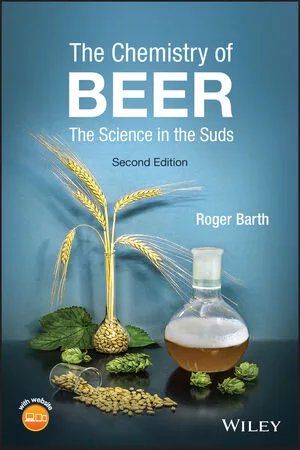Processing technology makes advancements within beverage market
Processing guidelines important for beverage formulators
The past two decades have witnessed more beverage processing changes than what occurred in the past 50 years overall. These changes have been created by several significant factors and many related issues in the industry. The increased competitive environment in all beverage categories continues to drive change within the industry.
A review of several categories substantiates the competitive factor, but further study shows that advanced processing technology and the continued entry of new products that require new capabilities also have driven the necessity for change and concern about processing and the costs involved.
By definition, beverage processing is the integration of various raw materials according to prescribed formulas into a finished product. Because product creation is the initial activity, it establishes the first step of the supply chain — where timing and compatibility are all important.
From an operations perspective, the beginning at Alpha demands analysis of how processing is accomplished by manual measurement, semi- or fully automated technology, and what it costs by any method. Many manual processing methods still can be used in small-volume operations; however, they can be costly and accuracy can be limited.
Nevertheless, the processing part of the supply chain has progressed well beyond volume-weighted tanks, flow meters and other scaled measurements. The advent of advanced measuring technology has been an expense for bottlers; however, it also has required just-in-time raw material delivery, higher frequency quality checks and bulk handling of most materials resulting in offset process cost savings.
In brewing, for example, liquefied hops have been an important change. The automated handling of grains and residual waste materials has resulted in cost savings, and yeast handling has reached advanced stages, enhancing the fermentation process. All advances have resulted in higher yields, lower costs and sustained quality levels.
In categories like carbonated soft drinks (CSDs), sports drinks and energy drinks, characteristics have made it necessary to use advanced processing methods for attaining quality levels as well as successful multi-step processing. The only drawback here is the expense of experimentation as entrepreneurs enter the system. The upside to this has been new technology with improved processing and lower cost.
The materials factor always is a concern because consistency remains important in product quality. Therefore, supplier contribution is critical to ensure material consistency and availability, which can lead to substitutions and lack of consistency. It might be subtle, but these two factors can make or break a bottling operation.
In addition to the material factor, machinery and equipment design is affected by material characteristics and has an impact on functionality and integration into the production line. This is where the debate for transition from manual to automated methods comes into play.
In almost every beverage category, machinery and equipment have been designed to handle bulk, solid or liquid materials at speeds and quality levels leading to the concept of a totally automated processing operation. In making the decision to transition from manual to automated systems, bottlers have had to weigh cost alternatives to establish justification for the project. The cost for each gallon or barrel might not appear to be a significant cost factor; however, maximizing yield is the prime goal of every brewmaster, syrup maker and quality-assurance manager during each step of processing. Each one is a challenge to be respected.
This is why is it advisable for beverage producers to establish processing guidelines for all products that will provide a basis to analyze potential areas for quality improvement, material utilization, method adjustments and acceptable cost levels.
As processing reaches Omega and supply chain, step one is completed. Yet, the finished product might have to meet certain criteria with the questions: can expected yield be maintained? What steps can be taken to ensure loss prevention? Has a process-loss benchmark been set? Are transfer methods compatible with the product and the equipment? At this point, an assessment of manual versus automated methods and costs should be made to ensure the proper protocols are being used.
The start of packaged production or pre-production also could have an impact on processing costs as container configuration, closures, valves, temperatures, product characteristics and more come into play.
For these and many reasons, processing should be a critical priority and end at different points depending on the product: beer, CSDs, etc.; however, the advancements have reduced costs in most cases and the future is in transition. Perhaps these insights have ignited the importance of such a routine practice.
Beverage processing can be an analogy to the experience with production line startup, downtime and green button syndrome. BI
Looking for a reprint of this article?
From high-res PDFs to custom plaques, order your copy today!




